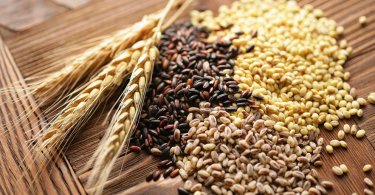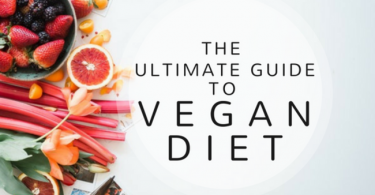Dietary patterns don't only affect your muscles and fat deposits; they also have a significant impact on the brain. A vegan diet, which excludes all animal products including dairy and fish, can provide benefits for brain health when it is balanced. However, a poorly planned vegan diet can have a negative impact on brain health, resulting in mental health problems and even neurological disorders.

Advertisements
Vitamin D
Vegans should be sure to meet the daily requirements for vitamins in order to ensure optimum brain health. Vitamin D is particularly important for vegans, since it isn't found in many vegan foods. According to "Scientific American" magazine, a 2009 study by researchers at the University of Manchester demonstrated that adults with lower vitamin D levels processed information much slower than those who had adequate levels. Fortunately, food isn't the only source of vitamin D. Your body makes vitamin D during sunlight exposure, so try to get at least 10 to 15 minutes of sunlight on at least three or four days of the week. Vegan sources of vitamin D include fortified soy milk and fortified orange juice.
Advertisements
Prenatal and Postpartum Period
The potential neurological effects of veganism are particularly important during the prenatal and postpartum period. According to the Centers for Disease Control and Prevention, a 2009 study by researchers from Emory University in Georgia found that infants of mothers who don't get enough vitamin B-12, or cobalamin, may be at increased risk for developmental delays. B-12 is also an important nutrient for neurological development of the fetus during pregnancy. For this reason, vegan mothers should be sure to obtain enough B-12 from their diet or take a supplement if necessary.
Essential Fatty Acids
Essential fatty acids help build brain cells, and they are also particularly important during pregnancy and while breast-feeding. However, all vegans should be sure to get enough fatty acids in their diet, since they can only be obtained from food sources or supplements. Lack of essential fatty acids contributes to cognitive impairment, depression, Alzheimer's and Parkinson's disease, according to the Franklin Institute. Vegan sources of essential fatty acids include leafy green vegetables and flaxseed oil.
Considerations
Generally speaking, a well-planned vegan diet provides all the nutrients you need for proper brain health and development. If you are pregnant or breast-feeding, or if you have other health concerns, such as Celiac's disease or a malabsorption syndrome, consult your doctor to determine whether you should take a dietary supplement to fortify your diet and provide certain nutrients that are more common in animal products. In addition to nutrients that boost brain health, be sure to also get enough calcium, which is required for healthy bones.
REFERENCES & RESOURCES Scientific American: Does Vitamin D Improve Brain Function? The Vegetarian Resource Group: Veganism in a Nutshell Centers for Disease Control and Prevention: Neurologic Impairment in Children Associated with Maternal Dietary Deficiency of Cobalamin The Dietitian's Guide to Vegetarian Diets; Reed Mangels et al. Physicans Committee for Responsible Medicine: Women on Vegan Diets Have More Long-Chain Omega-3s, Compared with Fish-Eaters




Comments